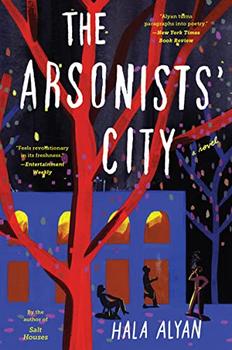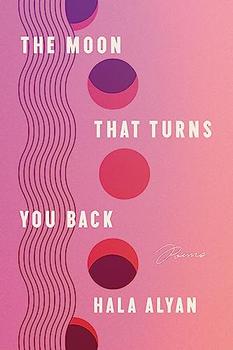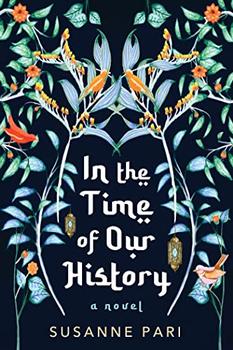Summary | Excerpt | Reviews | Beyond the book | Read-Alikes | Genres & Themes | Author Bio

Beautiful but embittered Mazna, a transplant to California from Syria, once dreamed of a glamorous Hollywood acting career. Instead, she has languished for 40 years in a small town in the California desert, her rocky marriage to Lebanese-born Idris Nasr scarred from the start by secrets and betrayals. Like their parents, Mazna and Idris's three adult children are also grappling with emotional baggage. Ava, the oldest, suspects that her husband is having an affair. Middle-child Mimi, a failed musician, is consumed by envy of his younger sister, Naj, who has hit it big as a rock star but is hiding her sexual orientation from her family.
The Arsonists' City explores these tangled family relationships in immersive detail, weaving in a crowded cast of secondary characters and hopscotching from Syria and Lebanon to California, Texas and New York to tell a story of broken dreams and broken hearts, loss and resilience, and the fraught legacy of a homeland left behind.
Divided into five parts that shift between past and present, the story unfolds over two alternating timelines. One plotline, set in 2019, focuses primarily on the three Nasr siblings, taking up shifting perspectives to reveal the characters' inner lives — and the tensions that erupt when Idris decides to sell the family home in Lebanon and the whole clan reunites in Beirut to stop him.
The second plotline swivels to the past to fill in Mazna and Idris's backstory, with scenes from Mazna's life in Syria in the 1960s, her encounters with Idris in the 1970s when she sneaks across the border into a Lebanon fractured by civil war, and the early days of Idris and Mazna's marriage after they immigrate to the United States. Casting a shadow over their marriage — and the book as a whole — is the murder of Zakaria, Idris's best friend and Mazna's secret lover, whose assassination in 1978 in a Palestinian refugee camp in Beirut, recounted in the book's prologue, shapes the fate of the whole family in ways that only gradually become apparent.
Over the course of the novel, Hala Alyan touches on a sweeping canvas of themes — Lebanon's political upheavals and its complicated relationship with Syria, Palestinian displacement, the present-day Syrian refugee crisis, immigration and assimilation, status and privilege. These themes, however, are only superficially developed, entering into the story primarily as a backdrop against which the characters' emotional lives play out as they confront their own inner demons — deeply held secrets, shame and guilt, grief, disappointments, resentments and insecurities.
Alyan, a clinical psychologist and poet, writes well and with insight about these subjects, but the pacing stumbles in places. While most of the book is a slow build, the ending feels overly rushed, with too many loose ends wrapped up too hastily. And while Mazna and Idris's story is genuinely absorbing, my interest flagged in the portions of the book dealing with the private lives of the Nasr children. These sections struck me as overly drawn out, bloated with tangents not connected to the book's central premise, and I didn't find the lives of the three siblings to be sufficiently interesting to merit such a deep-dive. (Naj's stereotypical rock-star life of drugs, drinking and sex, for example, comes perilously close to cliché.)
Despite some flaws in execution, however, The Arsonists' City is a compelling, multidimensional portrayal of the messy complexities of family life, and fans of character-driven novels will find this ambitious — if uneven — intergenerational drama to be a rewarding read.
![]() This review was originally published in The BookBrowse Review in May 2021, and has been updated for the
August 2022 edition.
Click here to go to this issue.
This review was originally published in The BookBrowse Review in May 2021, and has been updated for the
August 2022 edition.
Click here to go to this issue.

If you liked The Arsonists' City, try these:

by Hala Alyan
Published 2024
From the author of The Arsonists' City and The Twenty-Ninth Year, a new collection of poetry that traces the fragmentation of memory, archive, and family–past, present, future–in the face of displacement and war.

by Susanne Pari
Published 2023
Inspired by her own family's experiences following the 1979 Islamic Revolution, Susanne Pari explores the entangled lives within an Iranian American family grappling with generational culture clashes, the roles imposed on women, and a tragic accident that forces them to reconcile their guilt or forfeit their already tenuous bonds.
Your guide toexceptional books
BookBrowse seeks out and recommends the best in contemporary fiction and nonfiction—books that not only engage and entertain but also deepen our understanding of ourselves and the world around us.